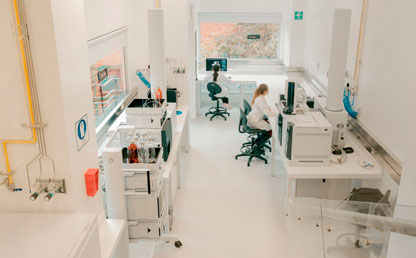Thirty percent of the global population suffer or have suffered from insomnia, which makes this sleep disorder among the most common but not the only one. Problems such as sleep apnea or REM parasomnias, when people move during sleep; or NREM parasomnias, which can lead to people sleepwalking, can result in individuals suffering from physical problems as they do not have sufficient rest.
These disorders and their relationships with different diseases are being studied by several research groups at the Universidad de los Andes that work in the field of neuroscience. Professor Mario Valderrama—from the Department of Biomedical Engineering—works with signals from the brain specifically in the contexts of sleep and epilepsy.
Valderrama highlights how these problems lead to people becoming less efficient during the day and, over time, they can develop cardiovascular issues or problems with the immune system. He says, “this is because there is a direct connection between brain, respiratory, and cardiovascular function during sleep”.
A world to explore
There are several unknowns in the field of sleep in which science is currently working. The scientific community is interested in different cases, such as patients with Parkinson's disease, which causes stiffness and tremors. However, when patients have REM parasomnias, making them move in their sleep, they do so without showing the symptoms of the disease.
Valderrama is currently working with external stimulation techniques: a low current or sound is applied and then the changes in physiological rhythms are observed during sleep. The purpose is to analyze the alterations that occur in the studied pathologies. Other similar research has shown that auditive stimuli improve physiology, which causes the neuronal ensemble to synchronize more precisely. How these stimuli have an effect on memory has also been observed.
“If a person learns a group of words and repeats them before going to bed: car, tire; monkey, banana, and then receives this as auditory stimulation in phase, the next day the person will remember more sets of words than if they were not stimulated”, comments Valderrama, who highlights the potential of these types of studies for the community in general.
There are several sleep-related topics that are being explored at the Universidad de los Andes. Professor Verónica Akle from the Faculty of Medicine works with circadian rhythms, which regulate the physiological functions of an organism. Additionally, professor Fernando Cárdenas, member of the Department of Psychology, studies the relationship between multiple sclerosis and sleep.
How to get better sleep

There are varied causes of sleep problems, but some can be avoided. Several years ago, medication was used to treat insomnia, which could have secondary effects on people. However, although medication is still given in many cases, there are now behavioral treatments related with what is known as sleep hygiene.
There are several practices that could help getting a better night’s sleep such as avoiding exposure to white light from a cellphone before going to bed. This reduces production of the hormone melatonin, which helps to regulate the sleep cycle. It could also help to go to bed at a set time.
Experts recommend steering clear of eating a large amount of food before going to bed or resting for several hours after having undertaken hard physical activity.









